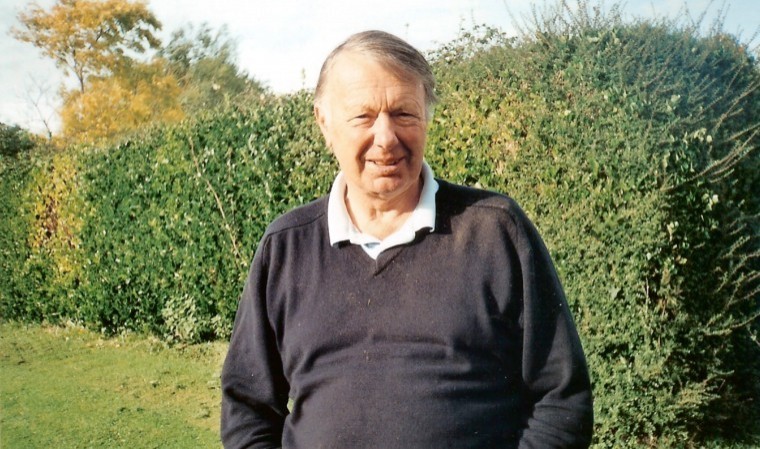You will probably have heard enough about the alpaca, Geronimo, that was eventually put down (not killed!) with suspected TB and inflicted with the shouting, screaming and tears that accompanied it. Several questions come to mind, but firstly why, when he was imported from New Zealand and tested positive with TB some two years ago, wasn’t he removed by DEFRA (known in this household as ‘Deathra’) and put down then? Even given their pretty questionable testing regime, why did they allow him to stay around other animals to risk infecting them? They would have taken animals from dairy farmers very quickly.
Now to the wider issues. Just ask any dairy or beef farmer, who will almost certainly have gone through similar traumas to that lady owner because TB is something most of us have lived with for much of the past 15 to 20 years. Some have dealt with this issue from much further back.
It is doubtless still ‘going the rounds’ because DEFRA don’t really care; after all it’s not their officials that suffer the losses, it’s not their money, it’s not their livelihood that is being steadily disrupted and not their confidence that’s being slowly destroyed. In fact, in the case of all four points they are making a living out of regular TB breakdowns, as it keeps them in well-paid jobs. Some might say overpaid, because if they were paid on their success in beating TB they would have been sacked long ago. Or resigned from their posts and ‘forced the issue’ with various governments.
I ran one or two dairy herds for over 55 years and, having seen the disease overcome in my father’s last few years of dairying, I hoped the problem was behind us. We knew the main culprits, badgers, and were able to deal with them, so for some 25 or 30 years after the disease was controlled, we were able to farm without the worry.
But then ‘limp’ 1970s Labour decided it would be a popular move to relax controls of badgers, to satisfy the noisy and growing ‘animal rightists’, and gave protection to these ‘spreaders of death’. It was not long after this that we began to have, or hear of, outbreaks of TB across mainly the southern half of the UK. It spread steadily from the previous hotspots (the west country and a persistent problem area in East Sussex) and suddenly many of us were seeing new cases and being faced with movement restrictions, setting us back on our heels.
Like the owner of Geronimo, we were pretty upset but, as working farmers, without much access to publicity and without today’s instant internet, we didn’t get hordes of people coming to support us. Speaking from first-hand experience, the problem crept up slowly. The first ‘shut down’ we had here was in 2000, when one animal tested positive. We were not initially too concerned, but the same year another three or four were taken away. Only two were infected, but of course we didn’t know that until they were long dead.
This rumbled on and off for the next 16 years. We lost around 20 animals but the number of those proving positive remained at around 25% of those taken away. DEFRA vets would confidently state: “They will have it” … but how could they tell with such inefficient testing methods?
In the end we felt we were fighting a losing battle with officialdom, that the vets could see easy work till they retired, a view appearing to be reflected right up through to the government of the day. Had it been a human disease, like Covid-19, I am certain real efforts would have been made to get drugs designed to treat it, but no government seemed really bothered. After all, the taxpayer was there to foot the bill – in England alone (in the late 2010’s) approaching £100 million a year, including inadequate compensation to owners, for around 30,000 animals put down annually.
I think governments of either hue and including the EU actually thought it was a good way to reduce UK cattle numbers, so had no real inclination to act. That’s just the same now. Meanwhile dear little ‘brocks’ are again breeding uninterrupted and TB continues.
Perhaps if the internet had come 10 years earlier, we farmers could have made waves and persuaded the voters to turn out, as they did for Geronimo, and persuaded governments to take the problem seriously. Sadly, few bothered, except the farmers and the private vets, who knew the State Vet Service simply didn’t have any real interest, other than in killing our cattle. I am just pleased we made the decision to get out when we did in 2018. It is a sad reflection on politicians that we are little further forward than in the early 1950s.
Most farmers should now be done with autumn drilling, with little active work to do other than look forward to some 14 to 16 weeks of dark, cold, wet nights. Getting away for a decent break is still a bit of a risk, since half the world operates quite difficult travel rules and many countries have still been unable to get ‘jabbed up’. A nice trip to some exotic place would be very refreshing but isn’t on the agenda; long flights are pretty exhausting at the best of times, but with travel constraints still in place it looks like a winter at home.




